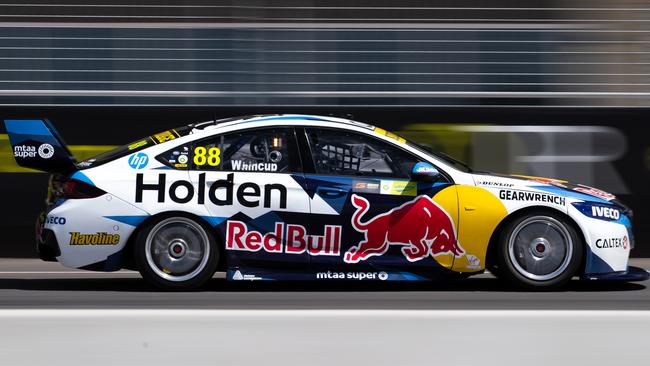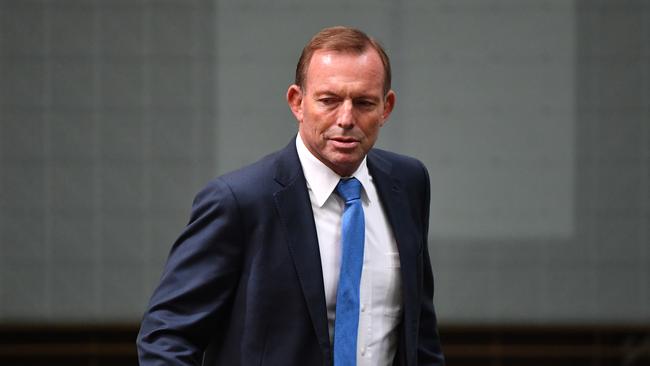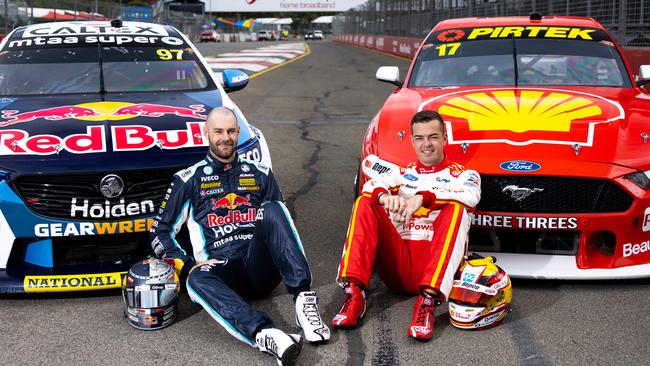David Penberthy: Holden didn’t have to close — the government let it die
When Holden was struggling, Tony Abbott and his government euthanised it, writes David Penberthy. Only now are we starting to realise what a terrible mistake that was.

Rendezview
Don't miss out on the headlines from Rendezview. Followed categories will be added to My News.
Forget the Bay to Birdwood – Adelaide’s biggest vintage car rally is underway this weekend.
If you want to marvel at living examples from our automotive past, head along to the Superloop 500. They’ve got these amazing old cars racing and they’re called “Holdens”.
The smouldering remnants of this once-great car company were snuffed out this week with the announcement out of Detroit that Holden would cease to exist. The rationale of the parent company, General Motors, is that it is exiting the right-hand-drive market on cost grounds. While dealerships will continue to sell remaining stock and service existing Holdens for the coming decade, this was the final death throe of a company that for years was pivotal to the economic wellbeing of South Australia.
The reaction in our state has not been one of despair or anger, more a fatalistic shrug of the shoulders. It is seven years since Holden ended as a manufacturing presence in this country, the reasons for which are various.
We have had plenty of time to get used to the idea of Holden being dead. It died because of changing motorist appetites and demand for smaller cars such as SUVs, which GM was slow to address. It died because the Aussie dollar was high at the time. It died because of the immutable bottom-line demands of a globalised economy, where a unionised workforce in Elizabeth will never compete with a factory full of Thai workers on less pay.

Holden also died because, when it was dying, the Abbott Government euthanised it, giving it a big shove in the back as it stood on the precipice. The Commonwealth pulled $500 million out of promised assistance to the company, with the then-treasurer Joe Hockey effectively goading Holden into leaving.
“Either you are here, or you are not,” Mr Hockey told parliament. Soon enough, they were not.
It was a weird way to treat an iconic and important Australian business. And Tony Abbott’s hairy-chested opposition to so-called government handouts seems particularly strange today at a time when Liberal conservatives and climate sceptics advocate the use of taxpayer funds for proposed coal-fired power stations unable to attract private investment.
The word “handout” is also the wrong word to use in relation to Holden because there was money going in both directions. Sure, between 2001 and 2012, Holden received $1.8 billion in Commonwealth assistance, but at the same time generated $32.7 billion in economic activity for Australia and paid $21 billion to other Australian businesses such as component suppliers, an 18 to one return on public investment.
Could Holden still have survived even with the maintenance or even an increase in taxpayer support? The answer to that is “probably yes”.

The advanced economies that have robust local car industries, places such as Germany and Italy and Japan, provide government assistance at a rate much higher than Australia ever did. We are starting to see the flow-on effects already from winding back this huge player in the manufacturing sector, one that propped up so many other innovative smaller firms that have now gone to the wall.
The alarming debate over the local build component in the submarine contract is an ominous case in point, with Naval Group’s reservations about the standard of local manufacturing. The French defence firm’s qualms can be summarised as follows: how are we going to build everything in a place that doesn’t build anything?
This debate has been presented as a Left-Right argument. It is not.
The Australian’s foreign editor Greg Sheridan – a close friend of Abbott’s and most definitely not a socialist – made a compelling case yesterday about the flow-on effects from the death of the local car industry.
Last year, I spoke to Nick Minchin, the longtime torchbearer for the Liberal conservative faction and a senior minister in the Howard government, who cited the withdrawal of support for the car industry as one of the Liberals’ biggest policy failures of the past decade.
“The manner in which the car industry was allowed to die shows there is a huge risk for any government, be it Labor or Liberal, if these two most important jobs are held by people from Sydney,” Mr Minchin told me.

“It’s extremely disappointing that it was the first Coalition government elected after Labor’s interregnum in 2013 that presided over the closure of the car industry. It would not have taken much to ensure that maybe not Ford but Holden and Toyota maintained capacity in Australia.
“Instead, they were basically told that they could go away, and that we couldn’t care less.”
The ideologically ambivalent Nick Xenophon is of a similar view, and told me this week that the biggest mistake past governments made with car-industry assistance was in failing to secure equity or intellectual property rights in return for their public investment.
Xenophon tells the story of how in 2015, he met Belgian businessman Guido Dumarey, the owner and MD of the Punch Group that manufactures automatic transmissions for cars. The Punch Group has a track record of turning around struggling businesses. It took the GM automatic transmission plant in Strasbourg, France, when it was slated for closure in 2012, but Punch Group increased its workforce from 1000 to 1350.
Dumarey had an ambitious plan to invest hundreds of millions of dollars into the Holden plant at Elizabeth to keep it open. However, in order to do so, Dumarey said that Punch Group would need to have access to what’s known as the Zeta Platform, the full-size rear-wheel drive automobile platform developed here in Australia by Holden.
GM told Dumarey that the Zeta Platform was theirs and there was no way he could access it – even though you could argue that it had been developed in large part with taxpayer dollars, and could have kickstarted the local industry had it been shared.
Whatever the case, it’s gone. And in the absence of a crazy-brave promise from a future nation-building government, it ain’t coming back. You can see Holden’s final lap in the eastern Parklands this weekend.

